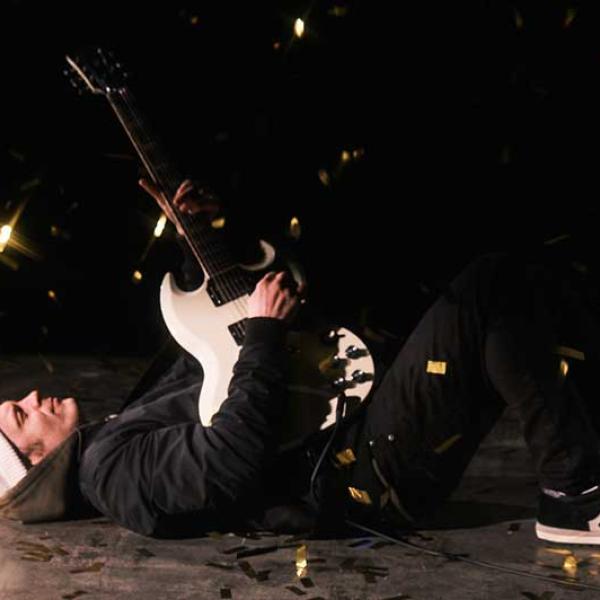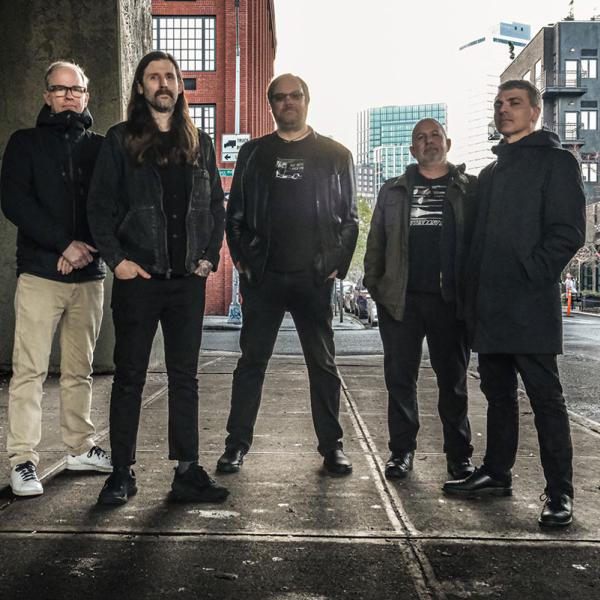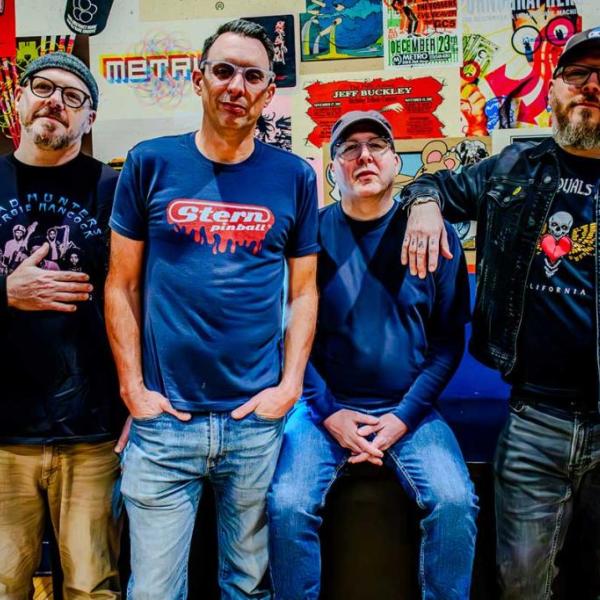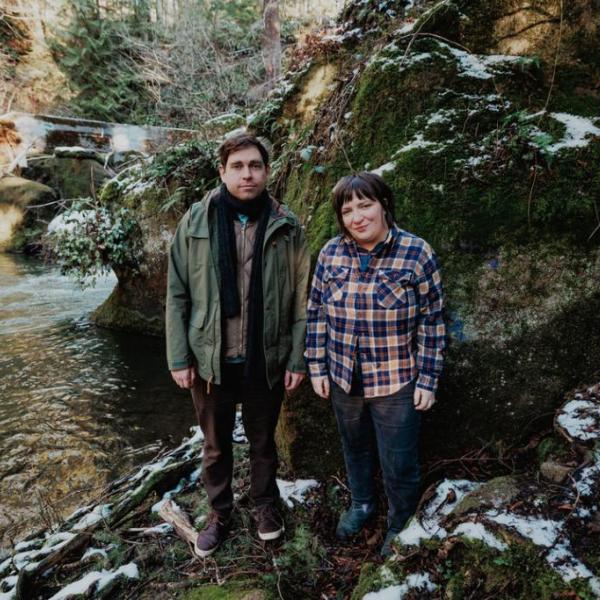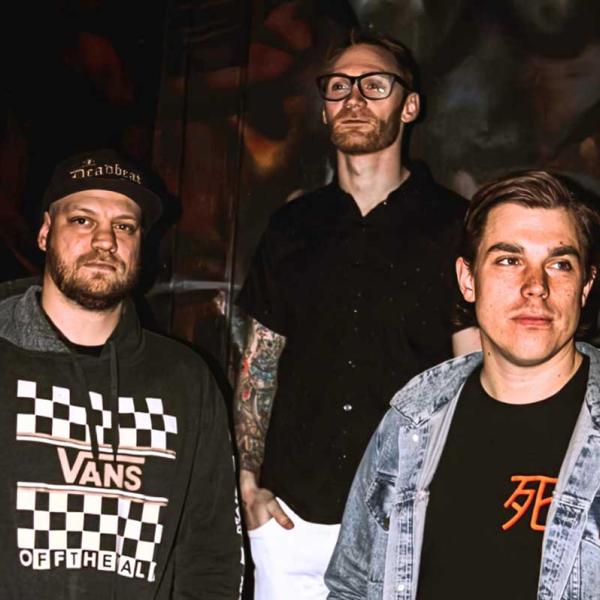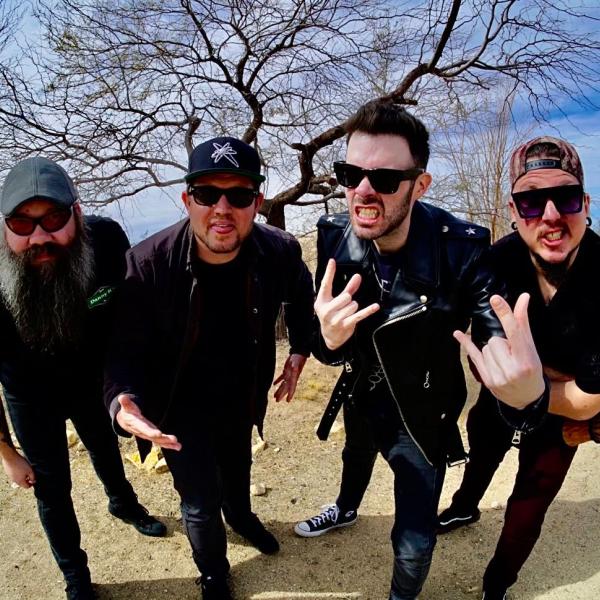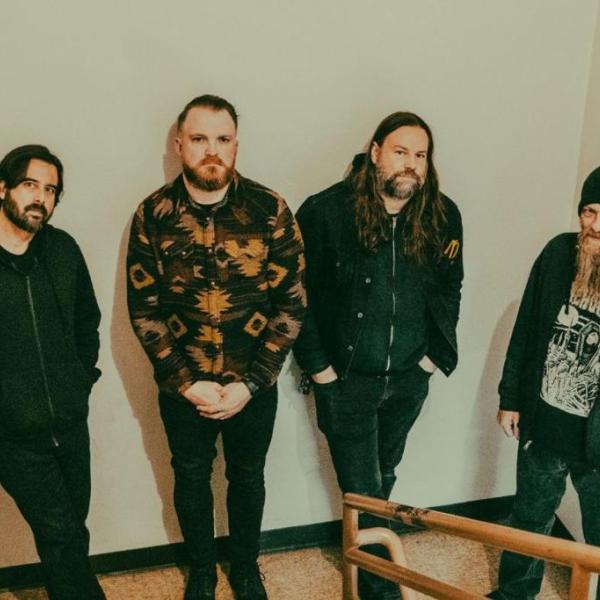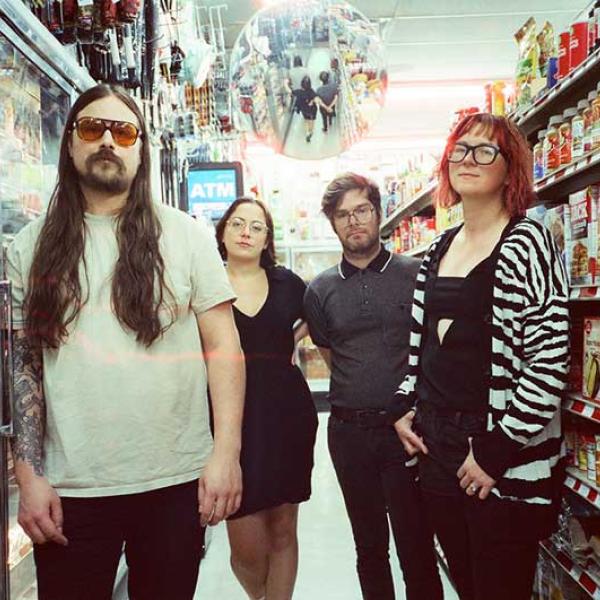Features
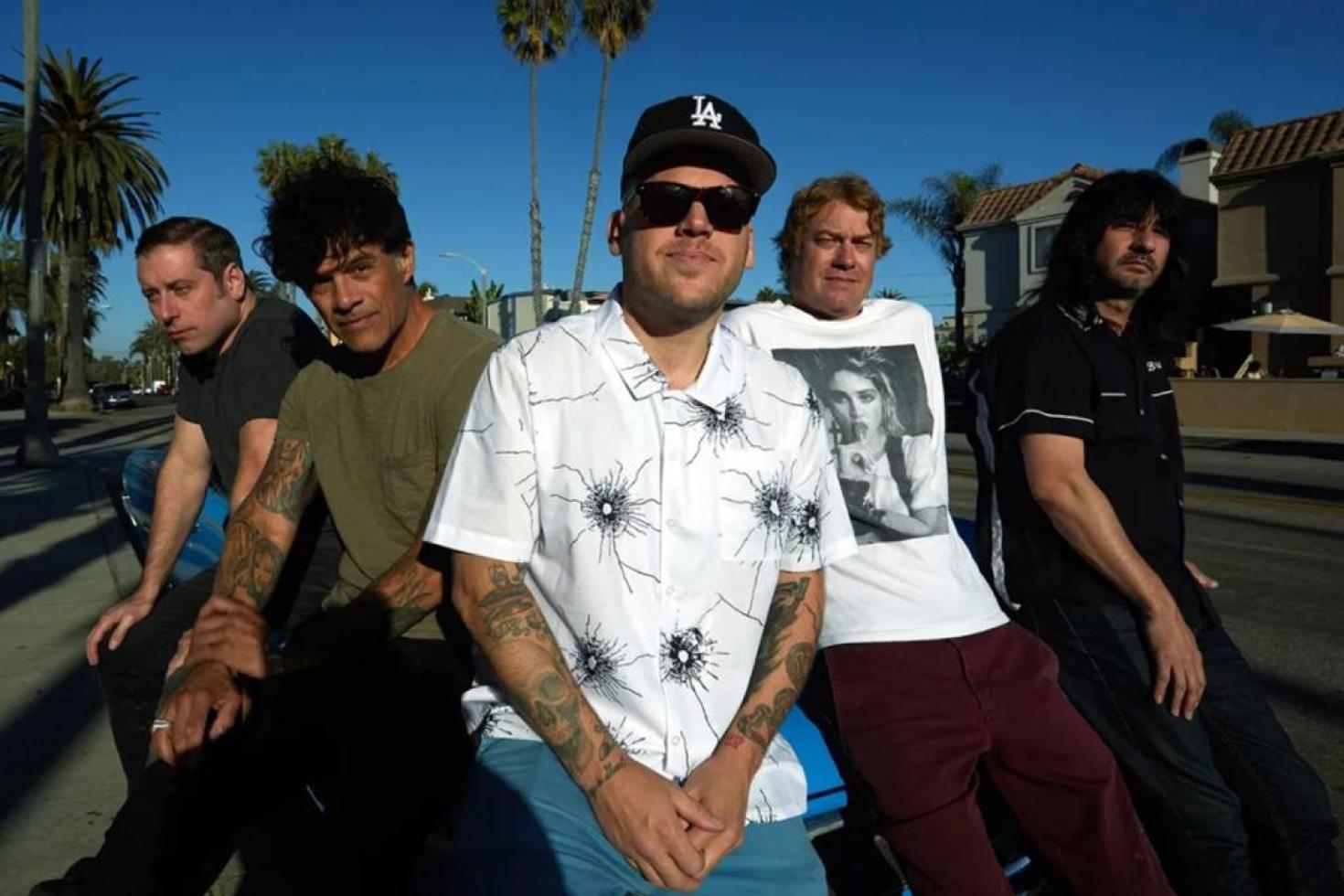
Right before their show at this year's Sjock festival, we caught up with The Bronx vocalist Matt Caughthran to talk about the 20th anniversary of the band's debut album, which gave us classics such as 'Heart Attack American, 'False Alarm' and 'They Will Kill Us All (Without Mercy).
PRT: With the 20th anniversary of the debut album, I thought we'd take a look back at the album. When you first started the band, did you have like any expectations or dreams, or was it just, we'll see what happens?
Matt: There were no real expectations, but it did feel different. With everything that I had been a part of before, it was more friendship-based. We grew up playing music together. So when Joby (J. Ford - guitar) introduced me to Jorma (Vik - drums) and James (Tweedy - bass), it was the first time I'd been a part of a musical project outside of what I grew up in. The energy felt different from the beginning. It felt really cool and exciting and like it could possibly go somewhere.
PRT: I read that both Joby and James worked at Vagrant Records at the time Is that where the idea for The Bronx came to life?
Matt: Yeah, well… Joby and I were playing in a band called The Drips, and we'd all just kind of known each other for a while. But yeah, Joby knew Jorma from another band and he kind of masterminded who he wanted to kind of play with. So it was all kind of his operation. And I was stoked to be asked to sing.
PRT: And you landed your manager after your very first show?
Matt: Yeah, maybe like one or two shows. It was quick. But it’s going back to what I mentioned earlier: the chemistry was there. We got three songs done and people were really stoked on it. And it was different for me to. Before, I was just kind of playing music and, having fun and going to parties. But Joby and Jorma, they had actual music industry connections, like managers and labels and stuff like that. So when we actually did have music, we had people to give it to and places to take it. I'd never been a part of anything on that level before.
So our first manager, Jonathan Daniel, helped us get that first demo out to a bunch of labels, both indie and major labels. And he was able to build this hype around the band. It helped that it was right around the tail end of bands like At The Drive-In when everyone was still really, really eager to sign guitar bands. The timing was perfect. So we kept writing music, making songs, tracking demos, and they ended up with the suits and ties. Which got them super excited about the band and we had them frothing for more.
PRT: So you have all this label interest pretty much right away. But then you go and decide to start your own label and do your own thing at first.
Matt: Well, one of the things that we were so fortunate with, with Jonathan, was that we had good good counsel around us. And he said, look, if you're gonna sign this deal with Island Def Jam, you should include your own label in there to have an outlet for things that you want to do that might not fit the major label type of thing, you know? So, that's where White Drugs came in, something that we still use to this day. Whether it's for B-sides or re-releases or whatever we're gonna do in the future. There was a time when there were some illusions of grandeur when we really thought about making it like a real deal label. But we were so busy touring and just being a band that we never really had time to invest in other artists. Now, basically it’s our little outlet for when we get weird <laughs>.
PRT: Is it also to keep more control on things?
Matt: Yeah. I mean, absolutely! We've been super fortunate with all of our record deals and with the people that we work with for the most part outside of the gripes that you have when releasing records. But our experience with record labels has been really cool. We've got almost all of our records back except for this last one, which is normal. And everyone that we've worked with has been really cool as far as like, you know, not trying to screw us over.
PRT: When you first started releasing music, you had the ‘Sure Death’ demo, ‘La Muerte Viva’, the ‘Bats’ EP and then the debut album all pretty much in the same year. You guys were eager to go.
Matt: Yeah, we were eager to go. We were rehearsing every day, we were hanging out. Everyone was super close. You gotta realize I didn't necessarily know Jorma and James that well so we were also bonding as friends. It was a really fun and creative time. The ‘La Muerte Viva’ EP was something of a left of center kind of experience, you know? We had the ‘Bats’ song and then ‘Stop the Bleeding’. I think there was also a Saints cover on there. We were just writing, recording, having fun and doing our thing. And it all helped build momentum for the record.
PRT: Do you still remember the first song that you wrote for the debut album?
Matt: Yeah, it was ‘Strobe Life’. Those were the first lyrics I wrote. And then after that it was ‘Heart Attack American’. Some of Heart Attack got finished in the studio. Same thing with ‘White Tar’. But ‘Strobe Life’ was the first song that I wrote lyrics to, and the first song I sang too.
PRT: Good one to start with! Was the album in general an easy one to write?
Matt: Yeah! It was the first album and there was a lot less overthinking. For me personally, I overthink a lot more now in terms of what I'm bringing to the table when it comes to lyrics or melodies. But at that point, it was very much like, just get it out. We're still a raw band, but that was just very, very, very raw. I had no clue what I was doing and was just trying to focus on getting the takes done. It was raw emotion, excitement and energy.
I remember recording the first couple of songs in Beau Burchell’s garage and then we went to Gilby Clarke's house to finish the record, which is were we recorded ‘They Will Kill Us All’ and ‘Gun Without Bullets’. That was a really cool experience. Beau was like the friend who's got this little studio in his garage in Costa Mesa and he was just figuring out what he was doing as a producer and engineer. And then we went up to Gilby's house in the Hollywood Hills. And, you know, he's this big Guns N Roses rocker, but it's still the same thing. It's his little studio in his house. But it was the LA version and the Orange County version of the same thing.
Sometime people wonder about if there was no stress recording with Gilby. There really wasn't. He's such a chill dude, telling Guns N Roses stories in between takes. So tracking that stuff with him was a blast.
PRT: What was the most random thing that happened while recording the album?
Matt: We saw a guy get shot. That was pretty wild. We used to go to this bar called Three Clubs. One night we were out smoking by the back door and these three cholo guys walk up and all of a sudden, two of 'em take a step back, and they shoot the third guy. He died right there on the sidewalk. It was crazy. Jorma ran up the street, Joby and I froze. They pointed their guns at us, didn't shoot and then took off. Security then came out and the guy just fucking died right there on the fucking sidewalk. It was crazy.
Nowadays, we are kind of scattered all over the place. You know, Joby is in Texas, I'm in Orange County, Brad's in Louisville and Ken is in Encinitas. But the energy of Los Angeles, especially at that time, was so influential on the band. It had such a big influence on us and it was such a big part of that first record.
PRT: Were there things you learned recording the first album that you knew you wanted to do differently on the second album?
Matt: Yeah. I mean, there was a couple things. I was secretly fucked up. I wasn't telling the guys, but I was doing drugs at the time. When it was my time to do vocals, I would just be so spun out that I couldn't really sing for longer than 20 minutes. I just knew I wanted to get better at what I was doing.
Especially when it became apparent that there was a real chance of being able to be a band for the foreseeable future. I had been at the end of my rope for a while, and I knew that I had to reel it in a little bit if I was going to be able to continue this. We also went through so many experiences so quickly that I didn't want to let those guys down either. And so I started taking things more seriously in the studio or when playing a show. It wasn’t like a fucking game anymore. It was still fun, but I had to step it up a little bit.
PRT: With so much coming at you, that doesn't seem like the easiest time to also then work on yourself.
Matt: It wasn't necessarily hard. I'll be honest with you, I wasn't looking to go cold turkey or anything like that. It was more about needing to level out a little bit. I think if it was something where I had to make this crazy life change, it would have been tougher. So thank god it wasn't really that big of a deal. It was just a little personal thing that I had to navigate and figure out.
PRT: My next question was going to be what the one piece of advice was that you would the 20 year younger version of yourself, but I guess I already know the answer.
Matt: That’s a tough question. I mean, if you could go back and say, don't do this, don't do that, then that's like a snowball. Which then leads to a whole other list of fucking questions. Like, what changes if I go back and I don't make that mistake?
Bandwise, I'm pretty stoked on everything we've done. It’s incredible what this band has given me and everything we've built together. I'm not really a big ‘what would you change’ type of guy. It is what it is. And we're still here talking about it, so that's good <laughs>.
PRT: Over the years I've been lucky enough to see you play a bunch of times already and I've never seen a bad show. How hard is it to always muster that energy before you go on stage?
Matt: It's honestly not that hard. We all love to play live. So it's not like we have to create this energy that's fake and where we’re like, oh, get ready cuz you gotta do three back flips. Some shows start slower than others, some end different. That just happens. But there's such a true love of and gratitude for being able to do what we do for as long as we've been able to do it that every time we get to play live, it just feels awesome. And the audience gets that. Of course you'll have shows where some crazy shit happened or you got shit going on back home or whatever. And I'm not gonna say we haven't had bad shows, but they are few and far between. It's just so much fun that if you can't enjoy it, you're doing something wrong.
PRT: I heard a story back then that some A&R guy messaged you guys ‘send me the rock’ and that you sent him a brick. Is that true?
Matt: Well no, it was a bag of rocks <laugh> That was Joby and our buddy Jonathan. I had no part in that. God knows what I was doing <laughs>. I didn't even have an email address at that time.
The courting time of the Bronx was a fun time. It was very short, but it was really cool. We got to do the major label strip club thing, the steak dinners and all that stuff. If you're a band and you're in that position, you usually only get one opportunity like that. So every band lives it up and experiences it in their own way because that's what you dream about.
But yeah, that was the genius of Jonathan and our friend Pablo. They said look, you guys are a new band and of course you're excited to possibly get signed, but you can't act that way. You gotta act like ‘fuck them, you don't need them. Who cares?’ And it fucking works, man. People wanted the demos, the t-shirts, they wanted to meet us, whatever. And we always just put 'em at bay.
PRT: There were a couple of stories like that going around back then. What's the craziest one you've ever heard about the band?
Matt: There was a lot of press and people who had never seen the band live, who thought I was black because of the rapper we had singing in the video for ‘They Will Kill Us All’. That whole year after the video came out, we had people saying I wasn’t the singer of The Bronx <laughs>. The guy who directed that video, Mike Elli, came up with the idea that if you're watching the TV with the sound off, that it would look like a hip hop video. I never expected people to actually full on believe it. But they did.
We also raged pretty hard in the early days. I mean, we still do that now, but we played it up a little bit more back then. People used to always think of us like these crazy cokeheads. There's never really been any insane rumors about the band that I can think of, just that we were a bunch of maniacs and that was partially true.
PRT: I remember the first time I had to interview you guys was at Groezrock. And everyone was like, don't talk to them before the show, just leave them alone. But you guys were fine. Over the years though you have become more professional. Is that just out of necessity once you reach a certain level?
Matt: Yeah, but I don't think we have sacrificed any fun at the sake of being professional. We just figured out the balance a little bit better. You settle into the routine of recording, touring, resting and get better at balancing your life outside of the band. We've been fortunate that this band is always fun. Even when you're in a situation that sucks, we're always stoked to be with each other and to be playing music and to be writing music.
So the spirit is very much still the same. I think in the early days, there was times where we teetered on that edge where you thought it could end at any moment. But it, it was never really an option. So I think for us, the professionalism, quote unquote, is a very loose term. It’s just something that comes along with 20 years of being in a band.
PRT: With the anniversary, you have some special pressings of the album coming out. You did a similar thing with the last album. Is that something you just love to do? Or is it also a good way these days to make money?
Matt: It's both. Our fans are incredible and they love vinyl. So for us it's a good way to make money, which nowadays you need to have. You gotta have different kind of revenue streams as they like to say. But it's also the foundation of rock and roll… fucking vinyl records. It's the coolest thing ever. The anniversary pressing of the first record is the fourth and last pressing. We could repress it and repress it and repress it and fans are always gonna be in love with the first record that any band does. But by making it the final pressing, we are also saying like, let's keep going. Onto the next one, let's do something else.
PRT: And are you already working on new material?
Matt: We're in a space right now where we're starting to figure out what we're gonna do next. We've got probably about five or six Bronx demos floating around and we'll probably get a little bit more serious about what we're gonna try to do in December and maybe have a plan going into next year about a possible window to either record some new Bronx stuff. Eventually we're gonna do another El Bronx record too. Both of those things are on the horizon.
PRT: With every album you've done, it's obviously always the Bronx, but your sound keeps evolving. Is that you challenging yourself as a songwriter?
Matt: I think that's it. Obviously we want to grow and not make the same record all over again. But there's also a natural evolution for every band member individually. For the first two or three records, Joby would write all the songs. And now Ken and Brad are writing songs as well, so there's new dimensions coming into the band. It’s a natural progression and that's kind of what you want to see in a band.
You never want to force things. You never want to have one person just feel all the weight or all the pressure to do everything. I think that's another reason why we're able to exist the way we do. Everyone is stepping up and working towards something, which makes the evolution exciting and natural. In that respect, albums are gonna change. I'm really stoked to see what we do next with The Bronx. I’d like to do another EP, which we haven't done in a really long time. But we'll see where it goes. We learned a long time ago that you can't make plans unless you've written music. Because every time you do that, it just works out the opposite way <laughs>.
PRT: But you're ready for the next 20 years?
Matt: Absolutely.


